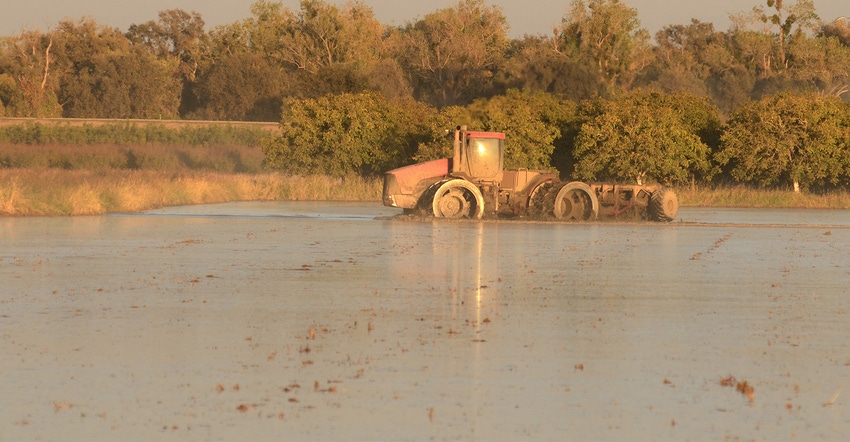
At the peak of the flood events in March, more than 75% of Nebraska counties had declared an emergency because of flooding. After the floodwaters receded, they revealed damaged bridges and roads, and sand and silt deposited on fields. But what about equipment?
Ron McClain, director of appraisals, pricing and sales support at BigIron Auctions, and regional manager for BigIron's eastern expansion areas, has seen several natural disasters in his 30 years in the auction business. He notes a few key steps in assessing equipment affected by flooding.
"The biggest thing I think is to not rush to judgment too quickly,” McClain says. “Take a look at the equipment. Don't rush to judgment. You can do more damage by firing up a machine that's been underwater without checking every function that should be in working order."
Of course, it's important to document any damage on equipment — which will be needed for disaster relief assistance, insurance purposes or warranties. Also, it goes without saying that it's best to consult your dealer for anything beyond the operator's knowledge.
"It might be best to schedule a mechanic visit that can determine whether the equipment is fit to use," McClain says. "Once that is discussed, they can determine whether the warranty is still in force, or whether the warranty is void due to flood damage."
McClain encourages operators with equipment or implements affected by flooding to thoroughly wash them with freshwater. Floodwater can carry corrosive materials that can not only damage equipment components but is also toxic to livestock and humans.
Meanwhile, it's important to allow electronics on equipment to dry out naturally.
"Try to get equipment in the shed and allow it to dry out instead of forcing it to dry,�” McClain says. “If you use a heat gun or air blower, it can actually do damage to electronics. You want to be careful and allow time to dry out before you start using it. There is nothing worse than trying to fire up a machine that has a lot of electronics until it's dried out a little, because it can create more damage."
On the other hand, when more equipment is out of commission, there is higher demand for the equipment that is available. "Especially for reclamation equipment like dozers or excavators, the value of those items is likely at a premium in local areas affected by flooding," McClain adds.
For those planning to buy equipment after flooding — especially for reclaiming or repairing damaged facilities or fields with sand or silt deposited by flooding — McClain suggests exploring other avenues of equipment use. This includes renting or buying equipment at auction for the short term.
"Sometimes a short-term rental makes more sense,” he says. “Or, you can pick up a machine at auction and once you get everything sorted out, you can turn it back into auction.
“BigIron has equipment auctions every week on Wednesdays, and we have a lot of customers that buy a tractor, implement or any kind of equipment for short-term use, and turn around and put it back into the auction again. Sometimes that makes more sense than paying long term for a rental that you never get back."
When it comes to buying and selling equipment affected by flooding, full disclosure is the best policy.
"If it's been in a flood, it may not impact its performance as long as it's been handled correctly, but it's very important that it's disclosed it has had some sustained damage and it's been repaired, and to provide an invoice from the repair," McClain says. "Try to be careful. All buyers should be asking questions. If people don't want to answer your questions, I would steer away from that and go somewhere else."
McClain notes the most important thing when buying equipment after a flood is to do your homework. Trust between the two parties is key.
"Don't just take someone's word for it," he says. "Anytime you're buying and selling equipment, trust is the key."
About the Author(s)
You May Also Like






